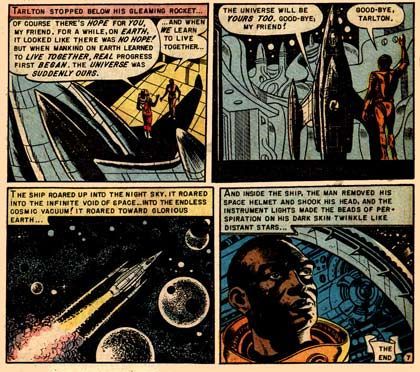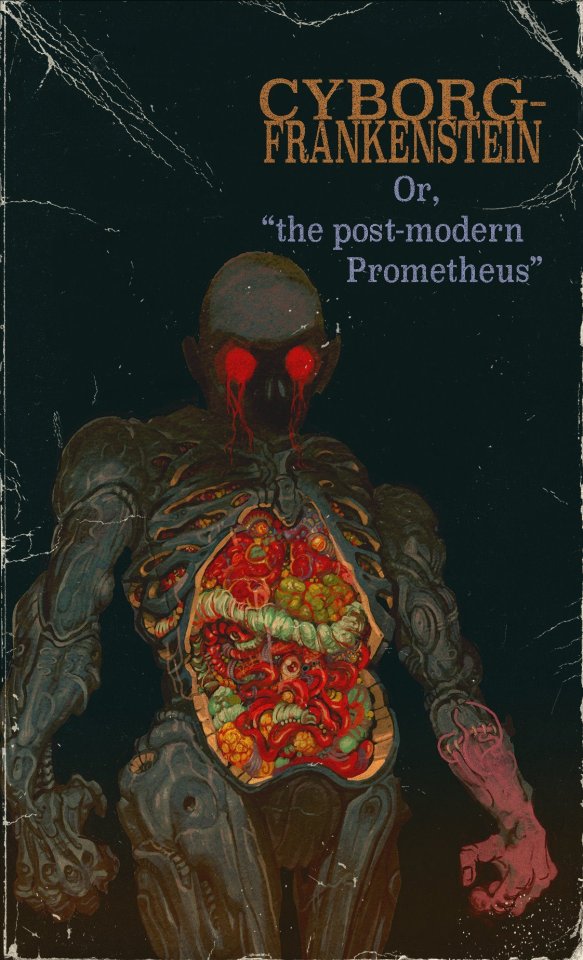Unique Vintage Male Names, Companion To This Post:
Unique vintage male names, companion to this post:



There are less of them because people seemed to be less creative with naming their sons. Not sure why.
More Posts from Captainflorenxe and Others

oooh have you ever done a post about the ridiculous mandatory twist endings in old sci-fi and horror comics? Like when the guy at the end would be like "I saved the Earth from Martians because I am in fact a Vensuvian who has sworn to protect our sister planet!" with no build up whatsoever.

Yeah, that is a good question - why do some scifi twist endings fail?
As a teenager obsessed with Rod Serling and the Twilight Zone, I bought every single one of Rod Serling’s guides to writing. I wanted to know what he knew.
The reason that Rod Serling’s twist endings work is because they “answer the question” that the story raised in the first place. They are connected to the very clear reason to even tell the story at all. Rod’s story structures were all about starting off with a question, the way he did in his script for Planet of the Apes (yes, Rod Serling wrote the script for Planet of the Apes, which makes sense, since it feels like a Twilight Zone episode): “is mankind inherently violent and self-destructive?” The plot of Planet of the Apes argues the point back and forth, and finally, we get an answer to the question: the Planet of the Apes was earth, after we destroyed ourselves. The reason the ending has “oomph” is because it answers the question that the story asked.

My friend and fellow Rod Serling fan Brian McDonald wrote an article about this where he explains everything beautifully. Check it out. His articles are all worth reading and he’s one of the most intelligent guys I’ve run into if you want to know how to be a better writer.
According to Rod Serling, every story has three parts: proposal, argument, and conclusion. Proposal is where you express the idea the story will go over, like, “are humans violent and self destructive?” Argument is where the characters go back and forth on this, and conclusion is where you answer the question the story raised in a definitive and clear fashion.

The reason that a lot of twist endings like those of M. Night Shyamalan’s and a lot of the 1950s horror comics fail is that they’re just a thing that happens instead of being connected to the theme of the story.
One of the most effective and memorable “final panels” in old scifi comics is EC Comics’ “Judgment Day,” where an astronaut from an enlightened earth visits a backward planet divided between orange and blue robots, where one group has more rights than the other. The point of the story is “is prejudice permanent, and will things ever get better?” And in the final panel, the astronaut from earth takes his helmet off and reveals he is a black man, answering the question the story raised.


Fig. 1
Finally some good food
How to Improve your Writing
Rick Riordan's Writing Tips

Rick Riordan:
Taste is subjective, and opinions differ about what "good writing" looks like. Most of us have read a bestseller or two and wondered, "How did this thing get published?" Nevertheless, I would argue that most work does not get published unless it demonstrates a certain level of technical competence. The grammar is correct. The prose is readable. I would further argue that most manuscripts are rejected because the writing is not technically competent. The manuscript never stands a chance because the writer simply doesn't know the craft of writing well enough. If you write well, you have already set yourself apart from 99% of what agents and editors see every day. Below are some notes on what I call "sentence level competence" — the ability to craft prose at the most basic level. These tips reflect the most common problems I've observed in unpublished manuscripts.
Sentence-Level Competence
Sentence focus — the subjects of all clauses should be appropriate to the content of the sentence.
Favor the concrete over the abstract, the antecedent over the pronoun.
Example: It was a sunny day. (the subject "it" is boring and vague.)
Better: The sky was brilliant blue. (Here the subject is sky, which is what the sentence was supposed to be about.)
If you are writing a sentence about a guy named Fred, the subject in the sentence should be (surprise!) Fred.
Exercise
Go through a page of prose and underline your own subjects.
How many are abstract?
How many of your sentences are truly focused?
Modifiers
Be sure the modifier refers to the right thing.
The modifier should refer to the closest noun.
Confusing modifiers will trip up the reader, consciously or subconsciously.
By the same token, pronouns should have clear antecedents.
Always place the modifier as close to the subject as possible.
Example: Can you help other writers who are writing books like me? (I got this question recently. I understand what the person is saying, but 'like me' follows the word 'books' so he is implying, without meaning to, that there are people producing books that look like him.)
Better: Can you help other writers like me who are writing books?
Exercise
Color-code a page of your manuscript, making each phrase and clause a different color.
Match up dependent clauses and phrases with their modifiers.
Avoid getting your modifier too far away from the thing being modified.
Deft Description
Choose your details carefully.
A description should be vivid, but surgically precise.
The detail must be given for a reason, and have a logical connection to the plot or advancement of character.
Avoid long "grocery lists" of details.
For a paragraph-length description, offer a uniting theme — an extended metaphor — to give the details cohesion.
Example: He was six feet tall, three hundred pounds, with brown hair, small brown eyes, a big nose and big fists. He wore jeans and a muscle shirt. He looked angry. (this is way too much description for the reader to keep track of, and it is offered as a random list)
Better: He looked like a rhino, ready to charge. (then you can pick a few details that reinforce the image of a rhino)
Exercise
Go through a chapter and delete all adjectives and adverbs.
Read through, then add some back in sparingly.
You may find you can do with less than before.
Parallelism
Clauses or phrases that are part of a list should be similar in structure.
Unparallel constructions are awkward and difficult to read, even if the reader can't put her finger on the exact problem.
Example: He likes dogs, hiking in the woods and reads books a lot. (Dogs is a single noun, hiking in the woods is a participial phrase, reads books a lot is a simple predicate. These are all totally different things. Make them the same, and the sentence will flow much better.)
Better: He likes walking his dog, hiking in the woods, and reading lots of books.
Exercise
Try constructing your descriptions in parallel units — absolutes, infinitives, adjectives.
Source
I can't tell if my dragon worldbuilding has gone too far when I start reading scientific papers on bat wig morphology and comparing them to bird morphology.

Obsessed with this design. It’s so beautiful

Gustav Samuelson
are you frequently overstimulated?
we need to bring an end to the nostalgia industrial complex
hi we animated the club penguin dance in a power outage yesterday
twitter - insta - youtube
-
 greenhairedfae liked this · 2 weeks ago
greenhairedfae liked this · 2 weeks ago -
 demontrashgreg reblogged this · 2 weeks ago
demontrashgreg reblogged this · 2 weeks ago -
 demontrashgreg liked this · 2 weeks ago
demontrashgreg liked this · 2 weeks ago -
 periidote liked this · 2 weeks ago
periidote liked this · 2 weeks ago -
 nonsemsical liked this · 2 weeks ago
nonsemsical liked this · 2 weeks ago -
 im-still-thinking liked this · 2 weeks ago
im-still-thinking liked this · 2 weeks ago -
 sheiswrappedinrainbows reblogged this · 2 weeks ago
sheiswrappedinrainbows reblogged this · 2 weeks ago -
 pepsdeps reblogged this · 2 weeks ago
pepsdeps reblogged this · 2 weeks ago -
 pepsdeps liked this · 2 weeks ago
pepsdeps liked this · 2 weeks ago -
 hdmhbdeda reblogged this · 2 weeks ago
hdmhbdeda reblogged this · 2 weeks ago -
 addieinfanworld reblogged this · 2 weeks ago
addieinfanworld reblogged this · 2 weeks ago -
 addieinfanworld liked this · 2 weeks ago
addieinfanworld liked this · 2 weeks ago -
 knaveofpentacles reblogged this · 2 weeks ago
knaveofpentacles reblogged this · 2 weeks ago -
 nadiaawesomesauce liked this · 2 weeks ago
nadiaawesomesauce liked this · 2 weeks ago -
 dr-clairebearbitch reblogged this · 2 weeks ago
dr-clairebearbitch reblogged this · 2 weeks ago -
 dr-clairebearbitch liked this · 2 weeks ago
dr-clairebearbitch liked this · 2 weeks ago -
 calebtheloser reblogged this · 2 weeks ago
calebtheloser reblogged this · 2 weeks ago -
 axelaxolotll liked this · 2 weeks ago
axelaxolotll liked this · 2 weeks ago -
 casualfruit reblogged this · 2 weeks ago
casualfruit reblogged this · 2 weeks ago -
 casualfruit liked this · 2 weeks ago
casualfruit liked this · 2 weeks ago -
 drearierpath76 reblogged this · 2 weeks ago
drearierpath76 reblogged this · 2 weeks ago -
 drearierpath76 liked this · 2 weeks ago
drearierpath76 liked this · 2 weeks ago -
 mccoppinscrapyard reblogged this · 2 weeks ago
mccoppinscrapyard reblogged this · 2 weeks ago -
 cowboyrave liked this · 3 weeks ago
cowboyrave liked this · 3 weeks ago -
 gargoylesandangels liked this · 3 weeks ago
gargoylesandangels liked this · 3 weeks ago -
 projectdaydream reblogged this · 3 weeks ago
projectdaydream reblogged this · 3 weeks ago -
 myloving liked this · 3 weeks ago
myloving liked this · 3 weeks ago -
 marshmallowiki liked this · 4 weeks ago
marshmallowiki liked this · 4 weeks ago -
 erensalvatore liked this · 1 month ago
erensalvatore liked this · 1 month ago -
 pancakeswithmaplebutter liked this · 1 month ago
pancakeswithmaplebutter liked this · 1 month ago -
 innocentrouges liked this · 1 month ago
innocentrouges liked this · 1 month ago -
 weirdwaterbear liked this · 1 month ago
weirdwaterbear liked this · 1 month ago -
 bisousgirl liked this · 1 month ago
bisousgirl liked this · 1 month ago -
 halforcbarbarian reblogged this · 1 month ago
halforcbarbarian reblogged this · 1 month ago -
 tbhcreacher liked this · 1 month ago
tbhcreacher liked this · 1 month ago -
 daisukecookiess reblogged this · 1 month ago
daisukecookiess reblogged this · 1 month ago -
 monochrome-exorcist liked this · 1 month ago
monochrome-exorcist liked this · 1 month ago -
 jaegertamer liked this · 1 month ago
jaegertamer liked this · 1 month ago -
 rorytunes liked this · 1 month ago
rorytunes liked this · 1 month ago -
 796 liked this · 1 month ago
796 liked this · 1 month ago -
 tortured-writer-complex reblogged this · 1 month ago
tortured-writer-complex reblogged this · 1 month ago -
 leucrotta liked this · 1 month ago
leucrotta liked this · 1 month ago -
 martian-garden reblogged this · 1 month ago
martian-garden reblogged this · 1 month ago -
 realitytheater liked this · 1 month ago
realitytheater liked this · 1 month ago -
 popatotoast reblogged this · 1 month ago
popatotoast reblogged this · 1 month ago -
 chickenwhittle liked this · 1 month ago
chickenwhittle liked this · 1 month ago -
 ali3nboyfriend reblogged this · 1 month ago
ali3nboyfriend reblogged this · 1 month ago -
 ali3nboyfriend liked this · 1 month ago
ali3nboyfriend liked this · 1 month ago

